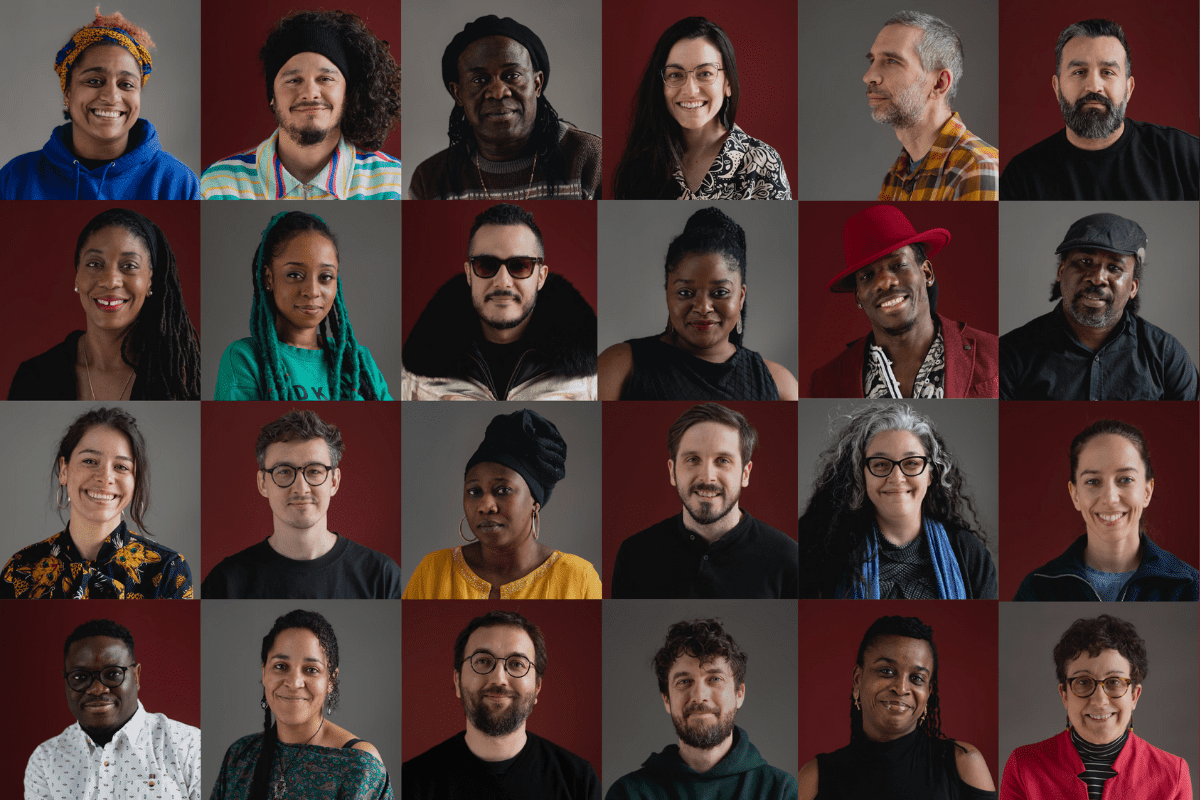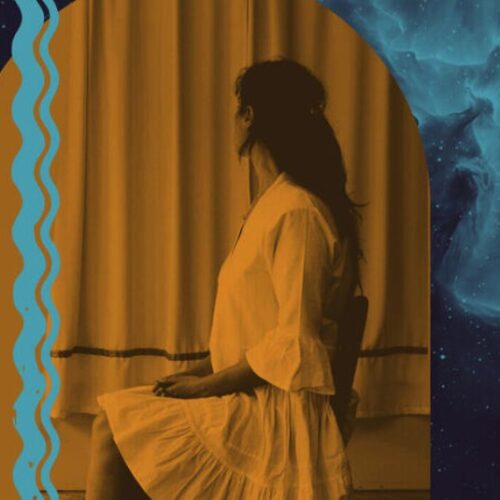Additional Information
On July 22 and 23, Productions Nuits d’Afrique will be overseeing the launch of La Percée, a living laboratory initiative to promote music in all its diversity online. Through various projects led by La Percée, “artists, academics and members of the music industry get involved and contribute to the spread of greater musical diversity in the digital environment.”
Against the backdrop of NAFI in full swing, La Percée “analyzes and highlights the challenges of online discovery of creations and productions labeled World Music” a catch-all, borderline colonialist expression that defines a vast, heterogeneous range of music from all over the planet… except the populations of the richest countries.
To mark the launch of this initiative, the public is invited to a participatory exhibition to discover the thoughts and projects behind La Percée.

The La Percée community, a “living laboratory”.
PAN M 360: First, let’s take a look at the genesis of La Percée, and what motivated its existence.
Johan Lauret: We decided to tackle a problem we’d been noticing for a long time, which isn’t specific to world music alone, but is even more visible in productions and creations labelled world music. In fact, it’s also an expression we’re questioning. With La Percée, the idea was already to analyze the challenges of discoverability. That’s why we met you in the wake of your book La Misère des Niches, as part of a study Destiny carried out.
PAN M 360: And what was the next step?
Johan Lauret: We decided to go a step further because we realized that the issues Destiny had raised were really important. Rather than leave the study there as it was, we decided to present it to the artists, popularize it, and see together how we could find possible solutions. When I say together, I really mean artists, industry professionals, institutions with discoverability projects and researchers. We’re going to incubate these projects in the laboratory.
PAN M 360: Summarize the main research parameters of this laboratory.
Johan Lauret: First and foremost, it’s a collective laboratory designed to promote greater musical diversity online. We realized that in the digital world, whether on streaming platforms or on the web, there’s an abundance of online music. There’s a huge, huge amount of content, but the recommendation algorithms, particularly on streaming platforms, are really focused on promoting a very small number of artists. So we thought that, when it comes to music, invisibility is more important than anything else.
PAN M 360: And how do you go about changing things on the web?
Johan Lauret: We started by asking ourselves two big questions: firstly, what are the real chances of discovering diverse music online? Secondly, is the so-called “world music” category still relevant for guaranteeing the visibility of a plurality of musical genres on listening platforms and on the web? To answer this question, we’ve begun to identify possible solutions. The first is a research/action program to be led by Destiny and a scientific advisory board, which will enable us to try and understand why this content is less pushed by recommendation algorithms, and thus see how we can improve this online discoverability.
Destiny Tchéhouali: I’d like to point out that what we’ve really added in terms of value to our findings, compared to what we’ve been seeing up until now, is that the problem of the discoverability of world music, of niche music, really amplifies a problem we were already aware of, but which we hadn’t fully grasped, particularly in terms of the role played by algorithms in anticipating and shaping trends and musical habits, and the way in which even styles, genres and musical universes are standardized in today’s era of streaming platforms.
And above all, we’re in a trend towards musical populism, where we’re really trying to offer the public what they know, what they have, what’s sufficiently well known that they won’t refuse it. And so, the global demand for mainstream music that is relayed by radio stations, that is supposed to appeal to everyone, that is easily accessible to all, is a trend that is not only confirmed but is currently being accentuated. And it’s not justified.
PAN M 360: For several years now, music lovers have been noticing and suffering from this.
Destiny Tchéhouali: We’re undergoing a kind of dictatorship of what’s recommended by the platforms. That’s really a major conclusion. This state of affairs will continue as long as we don’t take adequate measures to move towards a common definition of what we mean by niche music. The music community will therefore have to unite around a common, calibrated and consensual lexicon in order to counter this dictatorship of the platforms.
PAN M 360: Is it really possible to reverse this trend?
Destiny Tchéhouali: I wouldn’t say reverse the trend, but at least develop a new culture of musical diversity by recommending musical diversity online. To do this, we first need to qualify, recognize and characterize the music. We need to do this using both musicological criteria or even acoustic parameters, and perhaps also by using artificial intelligence systems to better take into account the diversity of these musical genres and sub-genres, particularly those that are grouped together in a bit of a catch-all manner in this “world music” category.
Beyond institutionalized categories, we want to give music lovers, users and artists the chance to catalogue and list all the keywords and tags, perhaps leading to a kind of new taxonomy based on the musical indexing of world music. The idea is to adopt a lexicon that better reflects the diversity of its genres and sub-genres.
PAN M 360: And what does the community think?
Destiny Tchéhouali: The intuition we confirmed has aroused the interest of other players such as Rideau, MétaMusique and ADISQ. We feel that there’s something to be done if we all get around the table together, even if it means developing a new model that may eventually be settled and appropriate, or even used by music streaming platforms too.
Johan Lauret: The idea of the first stage is to contaminate the entire ecosystem of cultural and digital projects in Quebec and Canada, and to see if platforms like Scène Pro and Rideau, which connect presenters and producers, can help us better define all the musical genres that make up the “world music” category. That’s also the idea behind the laboratory: to see how research work can feed into concrete projects here in Canada. With La Percée, the idea is to organize regular events to share what we’ve learned and stay in touch. With the major players in the industry, it’s a question of seeing how they operate and finding common ground to satisfy everyone. In a way, that’s our ambition.
PAN M 360: For the moment, in any case, there’s nothing to suggest that the situation will improve any time soon.
Destiny Tchéhouali: We read this article by Étienne Paré, which appeared recently in Le Devoir, pointing out that francophone music was the big absentee on the listening charts. Of the 100 most popular songs currently playing on listening platforms in Quebec, not one is from French-speaking Quebec. This is really worrying, but we mustn’t blame listeners. It’s more a question of understanding the dynamics of the offer as structured by the platforms and recommendation algorithms. We invariably come back to the question of taste similarity; algorithms categorize us, and this runs totally counter to the development of curiosity and eclectic musical tastes. What we need to do now is find a happy medium within this offer, and give a little power and autonomy back to the listener. When I say “power”, I mean more the freedom to choose, to get lost in repertoires and discover new musical worlds. That’s true discoverability.
PAN M 360: Finally, what is the nature of your partnership with Productions Nuits d’Afrique?
Johan Lauret: Nuits d’Afrique has almost 40 years of archives – audio content, video content, photo content. In the end, it’s really a part of the history of music that we want to promote. The idea is to make it a content platform at the heart of which we’ll really place the artists, especially those from the local scene. We’re also going to rely on their testimonials to tell this story. But behind that, we also really want to work on a structured, linked database so that this content can be discovered.
The idea is also to create rich, long-lasting editorial content that will ultimately document all the local and international artists who have passed through the Festival International Nuits d’Afrique. With this platform project, there’s both the idea of telling a story that, in the end, isn’t told so much, and of recognizing the contribution of all these artists to Quebec’s Canadian cultural heritage, but also of working to make all this content, all these artists, more discoverable in a digital environment.
The exhibit will take place at the Réfectoire of the Esplanade Tranquille du Quartier des spectacles, on July 22 and 23, from 1 PM to 8 PM.























